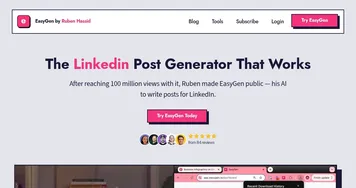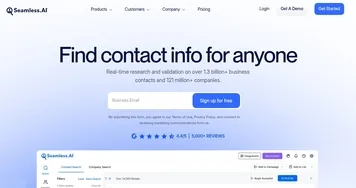Postiz

Postiz is an open-source social media management tool designed to schedule posts, analyze performance, and create content across 19 platforms, including Instagram, TikTok, and LinkedIn. It offers a centralized dashboard for planning and publishing, with AI-driven features like content generation and a Canva-like editor for visuals. Users can self-host the platform for free or opt for a managed subscription with a 7-day trial. The tool supports team collaboration, basic analytics, and a marketplace for exchanging posts, making it suitable for creators, businesses, and agencies.
The platform’s calendar feature provides a clear view of scheduled posts, streamlining content planning. The AI Content Assistant generates captions, hashtags, and strategies, though outputs may require editing for specificity. The editor allows users to design graphics without external tools, and team features enable task assignment and post approvals. Postiz supports platforms like Facebook, Reddit, and Bluesky, with direct authentication to ensure compliance. Its open-source nature allows customization via GitHub, and self-hosting uses Docker with Postgres and Redis for data management.
Drawbacks include a complex setup process for self-hosting, often requiring technical knowledge to configure environment variables or reverse proxies. Users on Reddit report issues like login errors due to misconfigured URLs. The analytics are less comprehensive than those of competitors like Hootsuite or Buffer, lacking advanced metrics for enterprise needs. Some requested features, like WordPress integration or post duplication, are absent. The marketplace is still developing and lacks robust functionality.
Postiz competes with Buffer, which offers a simpler interface but fewer platforms, and SproutSocial, which provides deeper analytics but is pricier. The self-hosted option is cost-effective, though managed plans align with industry-standard pricing. The community-driven development, with active developer engagement on Discord and Reddit, ensures frequent updates and bug fixes.
To get started, try the managed version’s free trial to assess usability. For self-hosting, ensure you have Docker experience and follow the official documentation. Join the Discord community for real-time support, and check GitHub for the latest updates or to contribute features.
Video Overview ▶️
What are the key features? ⭐
- Calendar View: Displays all scheduled posts across platforms in a clear interface.
- AI Content Assistant: Generates captions, hashtags, and content strategies automatically.
- Canva-like Editor: Creates visuals for posts without external design tools.
- Team Collaboration: Allows task assignment and post approvals for team workflows.
- Marketplace: Enables users to exchange or buy posts to boost reach.
Who is it for? 🤔
Examples of what you can use it for 💭
- Solo Creator: Schedules posts across Instagram and TikTok to maintain a consistent online presence.
- Small Business Owner: Uses analytics to track engagement and optimize content for LinkedIn and Facebook.
- Marketing Agency: Assigns tasks to team members for client account management on multiple platforms.
- Influencer: Leverages the marketplace to trade posts with other creators for cross-promotion.
- Tech Enthusiast: Self-hosts Postiz to customize features and manage data securely.
Pros & Cons ⚖️
- Supports 19 social media platforms
- Free open-source self-hosting option
- AI-driven content creation tools
- Intuitive calendar for scheduling
- Complex self-hosting setup
- AI outputs may need editing
FAQs 💬
Related tools ↙️
-
 Creatify
Streamline the creation of marketing video ads from a simple product URL or description
Creatify
Streamline the creation of marketing video ads from a simple product URL or description
-
 EasyGen
An AI-powered tool designed to help users create engaging LinkedIn posts
EasyGen
An AI-powered tool designed to help users create engaging LinkedIn posts
-
 Machined
Automates SEO content clusters with research and publishing
Machined
Automates SEO content clusters with research and publishing
-
 Icon AI
An AI-powered platform that simplifies the creation of video ads
Icon AI
An AI-powered platform that simplifies the creation of video ads
-
 Seamless.AI
A sales intelligence platform created to help professionals streamline their prospecting efforts
Seamless.AI
A sales intelligence platform created to help professionals streamline their prospecting efforts
-
 MarketingBlocks
Get all your marketing assets done in minutes by AI
MarketingBlocks
Get all your marketing assets done in minutes by AI

